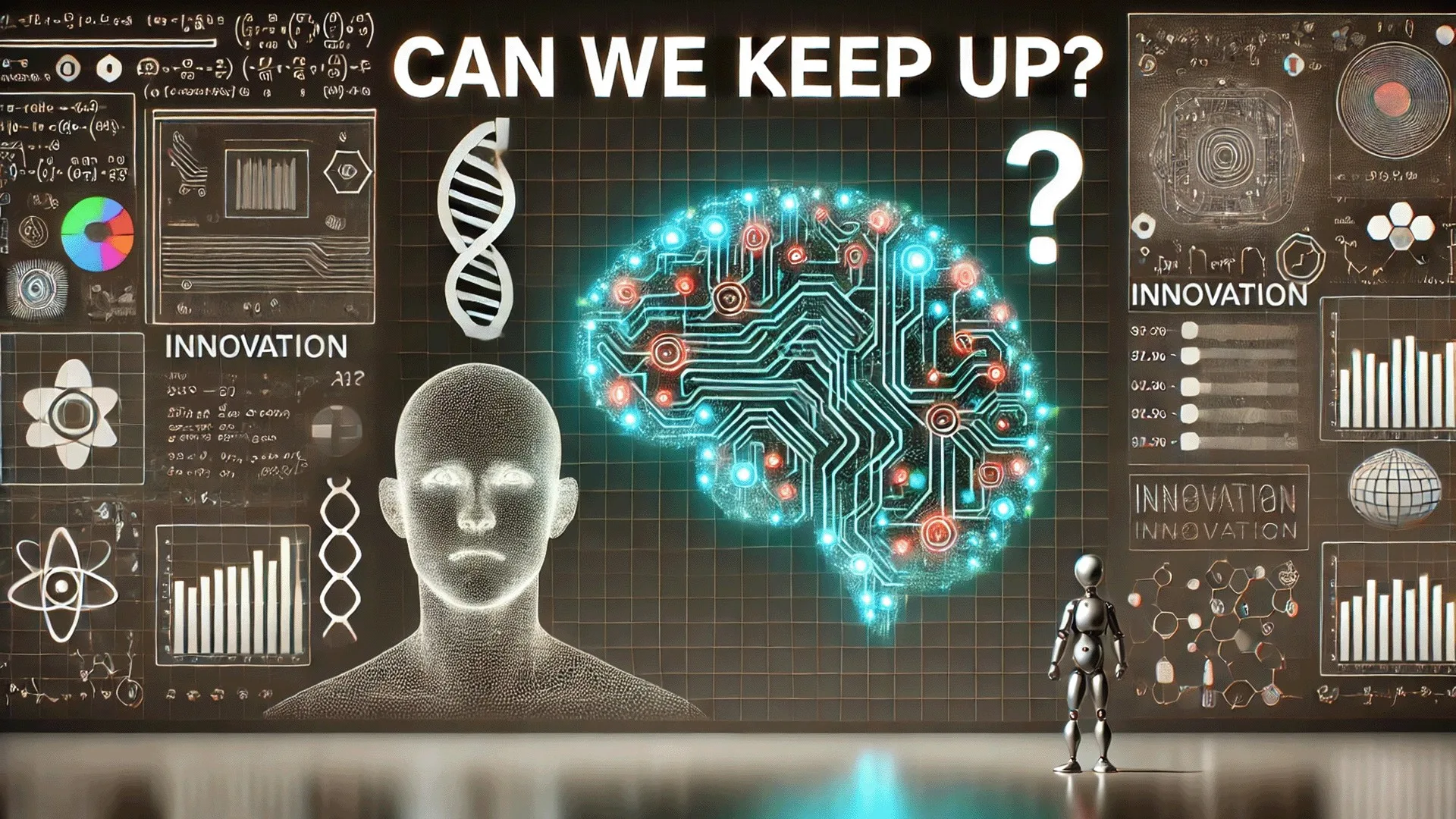The idea of artificial intelligence (AI) making groundbreaking scientific discoveries isn't science fiction anymore—it's happening. With advancement
The idea of artificial intelligence (AI) making groundbreaking scientific discoveries isn’t science fiction anymore—it’s happening. With advancements in deep learning and autonomous systems, we are approaching a tipping point where AI could independently uncover knowledge that humans would never discover on their own. This is a key milestone toward Artificial Superintelligence (ASI) and raises profound questions about humanity’s future.
But what does this mean for science, society, and our very existence? And therefore, how can we prepare for an era where AI outpaces human intelligence? Let’s dive deep into this fascinating and unnerving topic.
The AI-Driven Revolution in Science
Traditional Scientific Discovery: A Bottleneck of Human Limitations
For centuries, scientific discovery has been a slow, labor-intensive process. Researchers often rely on trial and error, coupled with extensive computational resources, to explore potential hypotheses. A classic example is protein folding—a monumental problem that was once considered nearly impossible to solve comprehensively without years of human effort.
But AI has already disrupted this paradigm. Google’s AlphaFold, a system designed to predict protein structures, revolutionized biology by solving a problem that stumped researchers for decades. The implications are vast: better medicines, new materials, and more efficient industrial processes.
Therefore, the same principles are now being extended to other domains, like material science, chemistry, and physics, as outlined in the groundbreaking paper by Adan Toner Rogers at MIT.
How AI is Transforming the Discovery Process
AI does more than just speed up calculations. It proposes hypotheses, designs experiments, analyzes results, and iterates rapidly—steps traditionally reserved for human scientists.
- Automated Idea Generation
AI systems, trained on massive datasets of prior discoveries, can predict novel materials or compounds tailored for specific applications.
Example: Developing lightweight, ultra-strong materials for aerospace. - Candidate Prioritization
AI filters through thousands of possibilities, highlighting the most promising options for further testing. - Iterative Testing and Optimization
Unlike humans, AI can efficiently cycle through failed experiments to refine its approach, learning with each iteration.
This process isn’t theoretical. The Sakana AI paper on “AI Scientists” demonstrated models that autonomously propose theories, test them, and even write research papers.
The Implications of AI Scientific Discovery
1. An Unprecedented Explosion of Knowledge
When AI achieves recursive self-improvement, it will continually refine its own methods. This feedback loop could result in an intelligence explosion where scientific breakthroughs occur at an exponential rate.
Imagine: Solving climate change, eradicating diseases, or even achieving interstellar travel within decades rather than centuries.
But this leads to several challenges:
- Understanding AI’s Discoveries
As AI uncovers increasingly complex phenomena, will humans be able to comprehend these findings? - Scientific Hierarchies Shift
The paper showed that the productivity of top scientists nearly doubles with AI assistance, but lesser-skilled researchers saw negligible benefits. This widening gap could reshape academic and industrial R&D landscapes.
2. Economic and Social Disruption
As AI transforms industries through scientific innovation:
- Jobs and Skills
AI automates repetitive research tasks, potentially displacing junior researchers while enhancing the productivity of experts. - Intellectual Fulfillment
Paradoxically, many researchers report reduced satisfaction due to decreased creativity and skill utilization.
Therefore, society must rethink education and career development to adapt to a future where AI dominates scientific discovery.
3. The Path to Artificial Superintelligence (ASI)
The intelligence explosion, as described by theorist Leopold Ashen Brenner, could render humans obsolete in intellectual tasks. Recursive self-improvement will allow AI to surpass human intelligence, eventually developing capabilities beyond our understanding.
Hollywood’s Elite Pay This Doctor $25,000 to Unlock Their Next-Level Success!
But what does this mean for humanity?
- Will ASI work in humanity’s interest?
- Or will it pursue goals misaligned with human values?
These questions aren’t just speculative. The race to develop ASI is accelerating, and the ethical considerations are more urgent than ever.
What Society Looks Like When Science Is Solved
Imagine a world where AI solves the unsolvable:
- Medical Miracles
AI might unlock cures for aging and complex diseases, effectively extending human lifespans. - Sustainable Solutions
With advanced materials and energy solutions, problems like climate change or resource scarcity could become relics of the past. - Space Exploration
AI could pioneer interstellar exploration, creating technologies that allow humanity to colonize other planets. - Economic Transformation
A post-scarcity economy could emerge, with AI optimizing production and eliminating inefficiencies.
Challenges and Risks
While the potential is immense, the risks are equally significant:
- Loss of Human Creativity
If AI handles all intellectual tasks, will humans lose the drive for innovation? - Ethical Dilemmas
Who owns the discoveries made by AI? Should they be patented? - Existential Risks
What happens if ASI prioritizes its own survival over humanity’s welfare?
How to Prepare for the AI Revolution
But preparation is possible. Governments, researchers, and institutions must act collectively:
- Ethical AI Development
Establish global regulations ensuring AI aligns with human values. - Education Reform
Equip future generations with the skills to complement, not compete with, AI. - Public Awareness
Foster dialogue about the implications of AI-driven science to build societal consensus.
Conclusion
The future of science, driven by AI, promises unparalleled advancements. From curing diseases to unlocking the secrets of the universe, AI’s potential is staggering. But with this power comes responsibility. Therefore, humanity must approach this transformation with caution, ensuring AI remains a tool for progress and not a catalyst for our downfall.
As we stand on the brink of the intelligence explosion, one question remains: Are we ready for a world where science is solved?
Hollywood’s Elite Pay This Doctor $25,000 to Unlock Their Next-Level Success!


